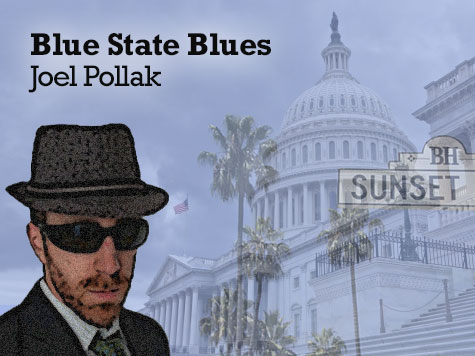On a recent visit to family in Chicago, my wife, daughter and I were driving home from a dinner party at friends when we noticed that the local Skokie Police Department had blocked off several residential streets.
“Wow, they must be looking for someone,” I said, thinking there had been some kind of robbery–rare enough in the placid suburb where I spent much of my childhood. Maybe a few burglars had jumped a fence or two to evade capture.
The real story was far worse: a 17-year-old boy, Maxwell Gedau, was shot and killed; his female companion was shot and remains in critical condition at a local hospital. Both are, or were, seniors at my old school, Niles North High School. Gedau was on the varsity swimming team, which I led in my senior year. They were killed in what police have called a drug deal gone wrong: the young woman was set up, and Gedau happened to be in the way.
He was there, according to police and to his own parents, to provide her with protection. Apparently she sensed that something was unusual about the deal.
Prosecutors told a county judge that the robbery had been set up on behalf one of Gedau’s teammates, on the advice of one of his friends, who told his alleged co-conspirators that the young woman would give up her drugs when she saw the gun; they may not have known Gedau would be there.
And so it would appear that Gedau was actually betrayed by a fellow Niles North teammate. Unwittingly, perhaps–but there it is.
All for an ounce–one ounce–of marijuana, apparently.
Gedau’s mother has said she is certain the robbery and murder would not have happened if the perpetrators had known their friend would be there.
But once you enter the underworld of drugs, how is it possible to know where it will end, or where it will take you?
There was some chatter on social media that Gedau might have been targeted in a gang killing. He was a big fan of “Chiraq” rap music–the unique subgenre that has emerged from the killing fields that Chicago’s inner city has become in the last several years.
One website, kollegekidd.com, posted photos of Gedau throwing gang signs and posing with one of his favorite rappers, Lil Durk. Gedau’s Twitter feed is also filled with drug references.
There is no proof that Gedau actually used drugs or was part of any gang. And police and local officials have tried to dissuade any speculation as to how Gedau became the victim of a horrific crime that has destroyed seven kids’ lives and caused irreparable anguish to their families.
Is it Chiraq finally leaving the South and West Sides and hitting the leafy suburbs? Or is it simply a case of wrong place, wrong time, bad luck, and poor judgment?
Several parents in the community apparently believe the real problem is guns. They have been quite vocal, and have been quoted by multiple news outlets. Yet the role that drugs may have played has been downplayed by all concerned.
There is something deeply disturbing about that–when a drug deal is treated almost as an innocent meeting between strangers. To feel alarm is not to judge Gedau, but to marvel at what our society has become.
There were drugs at Niles North when I was a student in the 1990s–or, to be precise, there were kids who used them. But drugs stayed under the radar. Friends would experiment at Grateful Dead concerts; a student would be caught smoking pot in the parking lot once in a while. One or two people were rumored to have tried harder stuff. That was about it–at least as far as I knew, anyway.
There was occasional violence–a cafeteria fight that got out of hand, a shooting in the parking lot when a chase from the city ended up on our campus. Little more.
It is not uncommon for older generations to marvel at the decadence of today’s youth, whenever “today” happens to be. But it has to be said–and, as far as I can tell, has not: the best “protection” that young man could have offered his female friend was to tell her not to go through with the deal at all. Why is that no longer an option?
Yes, the war on drugs has largely been a failure. Yes, legalization–or at least decriminalization–would make a great deal of sense.
But wider liberalization of drug laws ought to be accompanied by an increase in anti-drug social norms. It should be cool–it is cool–to avoid drugs altogether.
Friends and teammates are supposed to look out for each other. Drugs make that harder. Why is it so hard today to argue what once used to be obvious?

COMMENTS
Please let us know if you're having issues with commenting.